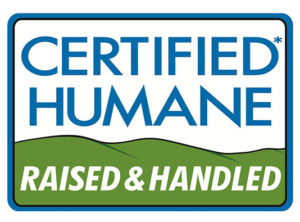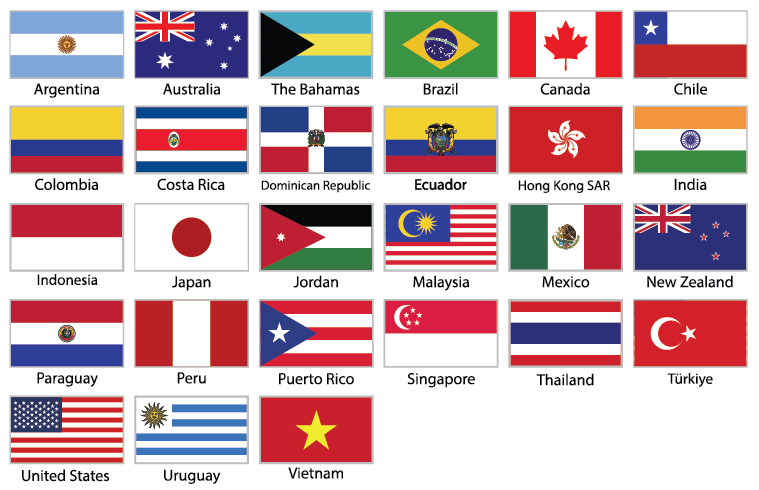When we launched Humane Farm Animal Care and the Certified Humane® program in 2003, our mission involved motivating farmers to adopt our Humane Standards of Care – and encouraging consumers to support those farmers by shopping for the Certified Humane® label.
Just 14 years later, we are seeing the impact that educated and ethical shoppers are having on farm animal welfare.
“Animal welfare organizations supported by consumers have been a driving force for change, though the decision to improve animal welfare is ultimately left to the individual company, whose response is often grounded in the desire to be competitive in a changing marketplace and proactively responsive to emerging trends,” says a recent report titled “Animal Welfare: Issues & Opportunities in the Meat, Poultry & Egg Markets in the U.S.”
The report also says more than half of U.S. consumers (58%) are more concerned about food animal welfare now than they were just a few years ago, which includes animal handling, housing, feeding, and slaughter – all concerns covered by Humane Farm Animal Care’s humane standards of care.
While the report revealed that 33% of consumers viewed themselves as well informed about claims such as “hormone/steroid/antibiotic-free, cage-free, free-range, pasture-raised and certified humane,” nearly double that number agree that the “humane treatment of animals raised for food should be a societal concern.”
While more people want farm animals raised Certified Humane®, more than 80% of consumers are still confused about most food labels, which less than ethical companies are betting on to sell their products. Here are three examples of the challenges consumers face in interpreting labels.
- Let’s say you see the term “Happy Hens” printed on an egg carton. These types of terms are marketing gimmicks and mean absolutely nothing in terms of animal care. Cage-free and pasture-raised hens on an egg carton also mean nothing unless the Certified Humane® label is also on the package. The Certified Humane® label is attached to HFAC’s humane standards of care for farm animals (all printed on our website) and, in this example, provides specific standards of care for pasture-raised, free-range and cage-free hens. Third-party inspections assure farmers are meeting HFAC’s standards. That’s what’s behind the Certified Humane® label.
- Another misleading term is “Organics.” Most shoppers assume that organic standards are inherently linked to animal welfare standards, but they about agricultural inputs, not animals. They are an environmental standard, which eliminates the use of pesticides and chemical (unnatural) fertilizers.
- What about grass-fed beef? People who buy “grass-fed” beef because they think the meat will taste better also assume there are some animal welfare standards linked to the term, according to the report. Again, there are no verifiable animal welfare standards associated with the term “grass-fed” unless the Certified Humane® label is also on the package.
That’s why the Certified Humane Raised and Handled® label matters so much for farm animal welfare. It’s the one label that is supported by humane standards of care and backed by third-party inspections — all experts in their field of animal welfare — so you know a certain set of humane standards of care are being met.
And the more consumers shop for and ask for Certified Humane® products, the more farmers, producers, food companies, grocery stores and restaurants will respond to these consumer demands by adopting humane standards of care and becoming Certified Humane®.




Survey Reveals Consumer Demands For Certified Humane®
Posted: January 14, 2021 by OrganicThemesDev
When we launched Humane Farm Animal Care and the Certified Humane® program in 2003, our mission involved motivating farmers to adopt our Humane Standards of Care – and encouraging consumers to support those farmers by shopping for the Certified Humane® label.
Just 14 years later, we are seeing the impact that educated and ethical shoppers are having on farm animal welfare.
“Animal welfare organizations supported by consumers have been a driving force for change, though the decision to improve animal welfare is ultimately left to the individual company, whose response is often grounded in the desire to be competitive in a changing marketplace and proactively responsive to emerging trends,” says a recent report titled “Animal Welfare: Issues & Opportunities in the Meat, Poultry & Egg Markets in the U.S.”
The report also says more than half of U.S. consumers (58%) are more concerned about food animal welfare now than they were just a few years ago, which includes animal handling, housing, feeding, and slaughter – all concerns covered by Humane Farm Animal Care’s humane standards of care.
While the report revealed that 33% of consumers viewed themselves as well informed about claims such as “hormone/steroid/antibiotic-free, cage-free, free-range, pasture-raised and certified humane,” nearly double that number agree that the “humane treatment of animals raised for food should be a societal concern.”
While more people want farm animals raised Certified Humane®, more than 80% of consumers are still confused about most food labels, which less than ethical companies are betting on to sell their products. Here are three examples of the challenges consumers face in interpreting labels.
That’s why the Certified Humane Raised and Handled® label matters so much for farm animal welfare. It’s the one label that is supported by humane standards of care and backed by third-party inspections — all experts in their field of animal welfare — so you know a certain set of humane standards of care are being met.
And the more consumers shop for and ask for Certified Humane® products, the more farmers, producers, food companies, grocery stores and restaurants will respond to these consumer demands by adopting humane standards of care and becoming Certified Humane®.
Category: home page element